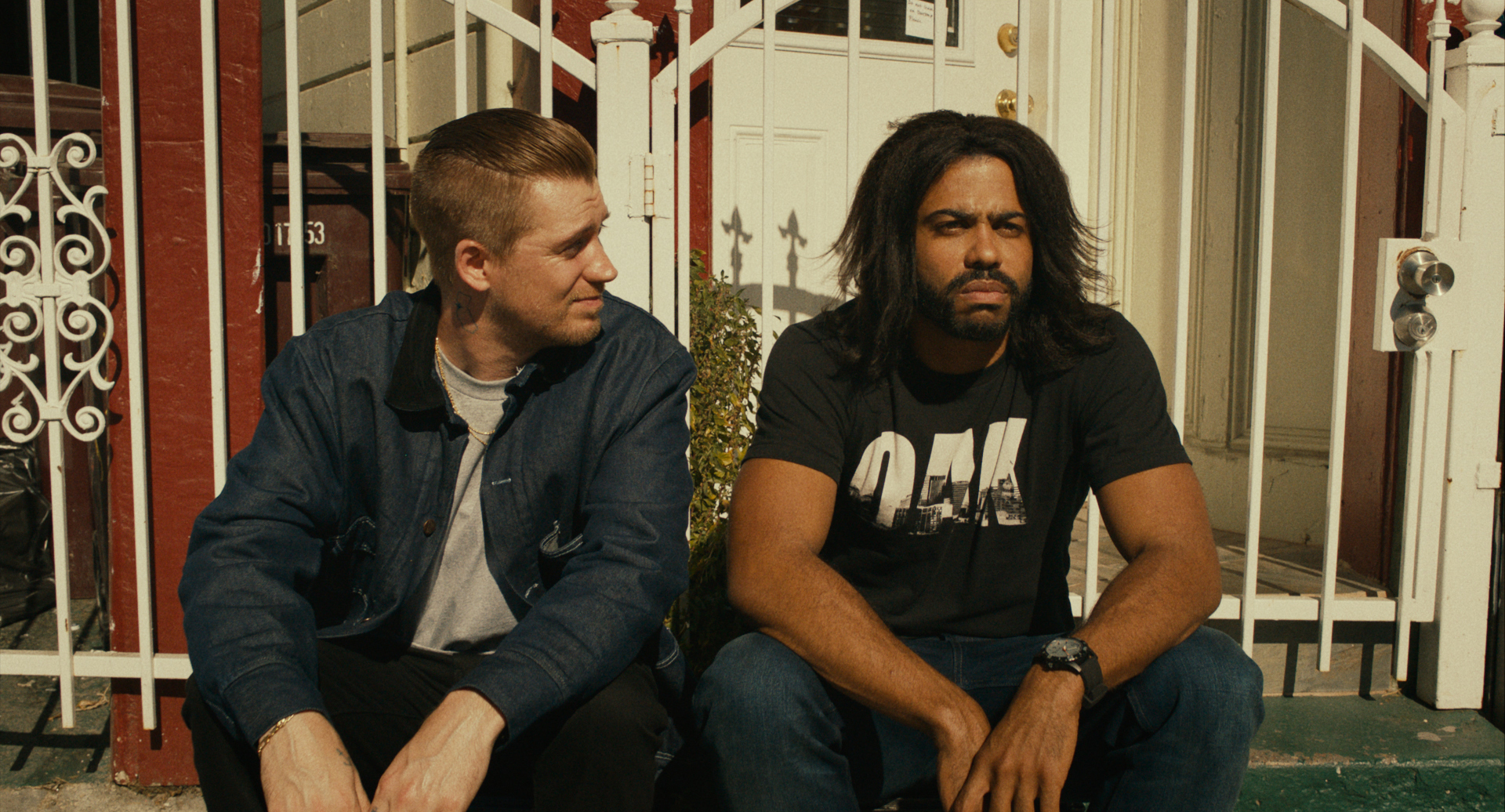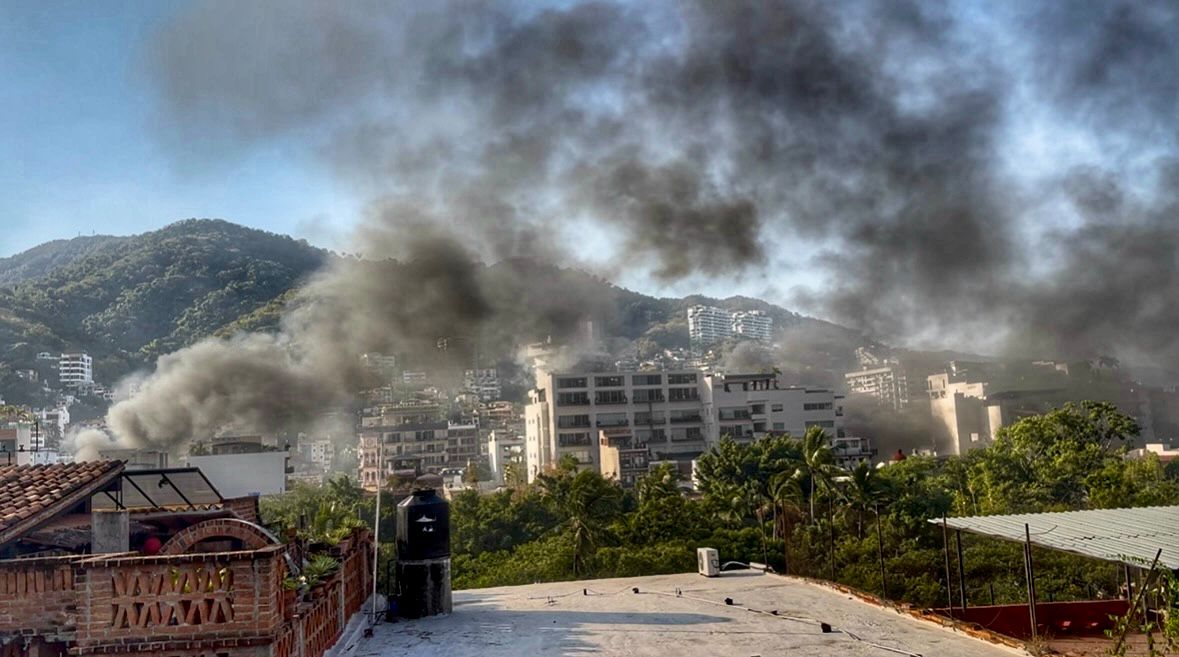[dropcap size=big]I[/dropcap]n many ways, Blindspotting is a film about dualism and the tension between seeing things from multiple perspectives: The old Oakland vs. the new Oakland. White experiences vs. black experiences. Crime vs. police brutality. Surreal vs. real. The modern day buddy film set in Oakland stars IRL friends and co-authors of its script, Daveed Diggs and Rafael Casal.
Growing up in Oakland, Diggs and Casal have watched their city change first-hand. Daveed’s family was recently priced out of Oakland (they moved to Richmond and are facing similar problems there) and over the course of the making of the film, Diggs and Casal found out that many of the locations they wanted to shoot no longer existed, a reflection of the East Bay's rampant gentrification.
The duo uses the film as a way to bring attention to the impact of gentrification on California's communities of long-term residents, but also as a way to mourn the loss of relics from their childhood and the loss of the real innocent lives that have been killed at the hands of police. Despite taking on such serious issues, Blindspotting is still an incredibly funny film that shifts quickly between moments of comedy and drama.
[dropcap size=big]D[/dropcap]iggs is best known as the Tony and Grammy Award winning star of the hit Broadway play Hamilton. He leads the narrative as Collin, a convicted felon with everything to lose finishing off his final three days of probation in a halfway house. Casal is a Latino spoken-word artist and playwright. He co-stars as Miles, a hot-headed, working class white West Oakland native that feels like he has everything to prove.
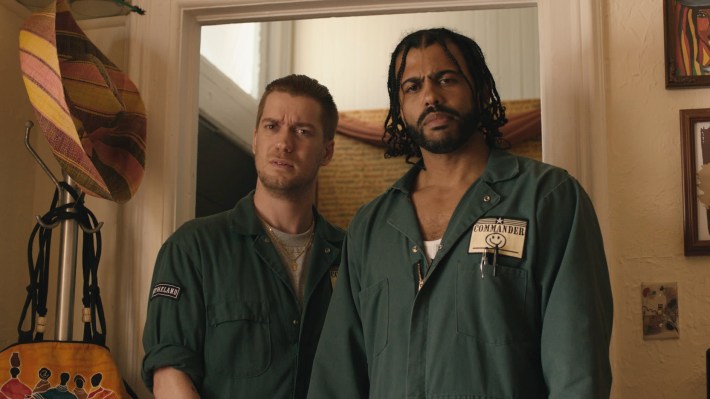
Together with first-time director, Carlos Lopez Estrada, Diggs and Casal create a visceral story centered around Collin’s and Miles’s relationship. The duo grows to develop a better understanding of one another’s differences over the course of three days in a rapidly gentrifying Oakland.
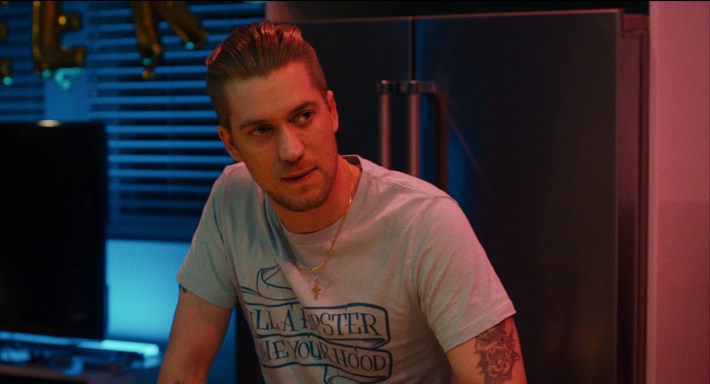
Collin’s life is changed forever, early on in the film, after he witnesses a police shooting. Despite being an extremely timely story, Blindspotting has actually been in the works for nearly a decade (could you imagine this film coming out in 2008?).
According to a statement released by Lionsgate, Casal and Diggs were invited to write the film after producer Jess Calder, discovered Rafael Casal while watching Def Poetry Jam. She said she was struck by his charisma. “Rafa was able to convey truth and honesty in a way I had never experienced,” Calder said in the statement. Calder started following Casal on the internet and eventually reached out to him. “I said to him, ‘This will sound crazy, but I feel like you might have a really great film idea in you, and I’d love to be a part of the process.’”
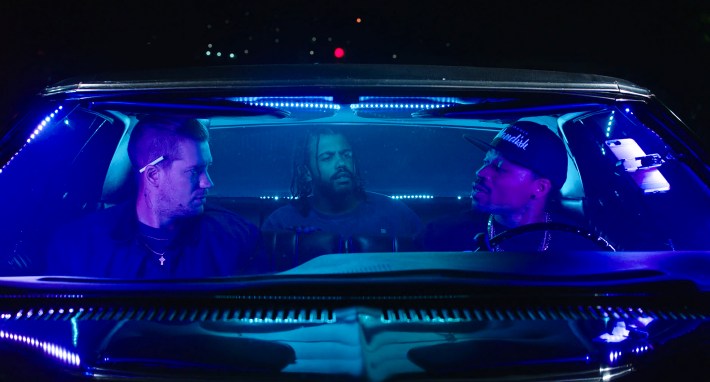
From the beginning, Casal and Diggs knew they wanted their narrative to represent the unique culture of Oakland by showcasing the cities one-of-a-kind slang, style, music and lifestyle while also honoring the city’s long history of protest and social activism. Police shootings and violence has been a part of the history of the city of Oakland since the 60’s.
The filmmakers present the harsh realities of gentrification and also the divide it creates in communities. Some long-term residents actually welcome the changes due in part to more choices in food, decreased crime rates, and rising home values.
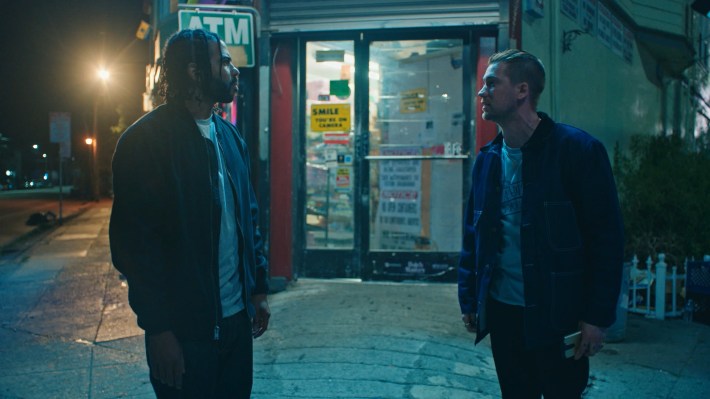
“The movie isn’t about the wide divide between black and white — it’s about the incredibly narrow divide between two people who grew up in the same circumstances with the same hostilities, attitudes and ideologies surrounding them, but one is black and one is white and they have to walk through the world differently,” Casal explained. “It’s not a canyon between them, it’s a hair splinter between them. But what’s a minor distance for Miles is cavernous for Collin. On the surface they’ve had a lot of the same experiences growing up in Oakland but inside they’ve learned very, very different things about the world.”
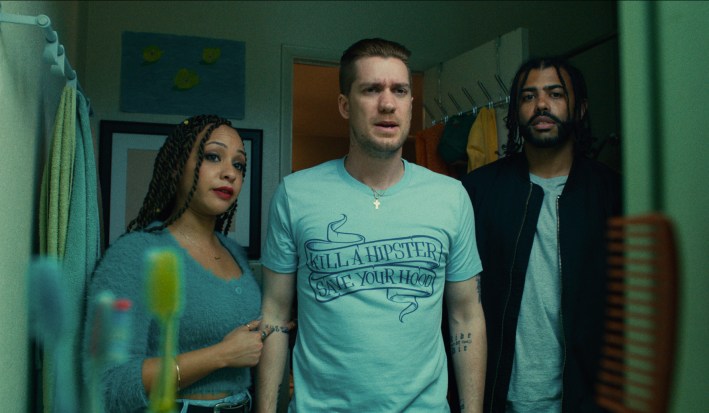
The team borrows from their experience freestyle rapping as kids as well as creating music videos and the theater to employ an experimental form they coined “cinema-in-verse” a style of filmmaking reminiscent of old musicals that combines theater and rap. At times, conversations in the film melt into freestyle rap.
Because Diggs was unavailable to write some of the script due to schedule conflicts with Hamilton, Casal honed his skills as a slam poetry champion and wrote all the raps in the film. “I wrote all the raps as poems in bar form,” Casal explains. “They’re not really freestyle raps because that’s a specific term for a certain improvisational form. It’s just written as super-heightened poetic verse that is perhaps all in the character’s head.”
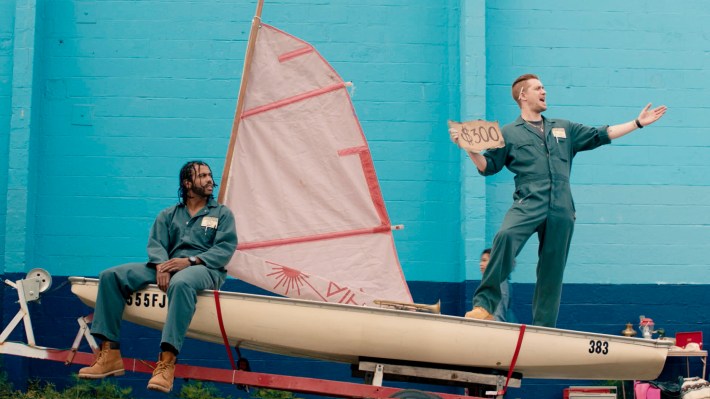
Even in the wake of another recent film set in Oakland – Sorry to Bother You – Blindspotting is a movie completely in it’s own lane. It’s a story that feels truly lived in. I’m confident that both films will give way to many more like them in the future and hopefully empower more talented voices like Diggs and Casal.
It’s 2018 and it finally looks like studios are giving more black authors a chance to tell their stories. But simply getting black films made isn’t enough. People need to go and support these films in theaters so we can prove to distributors that there’s an audience for movies like Blindspotting and Sorry to Bother You. Praise doesn’t do the work enough justice. In short, go see Blindspotting so that they make more films like Blindspotting.
In theaters everywhere.
RELATED: 'Sorry to Bother You' ~ Poised to Be the Sci-Fi Summer Hit
